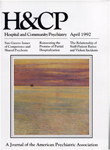An Empirical Review of the Impact of Triplicate Prescription of Benzodiazepines
Abstract
In 1989 New York became the first state to add benzodiazepines to the list of controlled substances requiring a triplicate prescription, allowing the state to track prescribing patterns and target providers, pharmacies, and patients for investigation when misuse is suspected. Studies by the state reporting that regulation has significantly reduced inappropriate prescribing and illicit diversion of benzodiazepines without affecting legitimate prescribing practices are being challenged by other studies showing that patients with legitimate needs for benzodiazepines are being denied them, often after abrupt discontinuation. Several reports indicate a significant increase in the prescribing of benzodiazepine substitutes that are less safe and effective, along with increased overdoses of some substitute drugs. Changes in physicians' legitimate prescribing practices may reflect their fears of the damage to career and peace of mind that follows investigations by regulatory agencies.
Access content
To read the fulltext, please use one of the options below to sign in or purchase access.- Personal login
- Institutional Login
- Sign in via OpenAthens
- Register for access
-
Please login/register if you wish to pair your device and check access availability.
Not a subscriber?
PsychiatryOnline subscription options offer access to the DSM-5 library, books, journals, CME, and patient resources. This all-in-one virtual library provides psychiatrists and mental health professionals with key resources for diagnosis, treatment, research, and professional development.
Need more help? PsychiatryOnline Customer Service may be reached by emailing [email protected] or by calling 800-368-5777 (in the U.S.) or 703-907-7322 (outside the U.S.).



